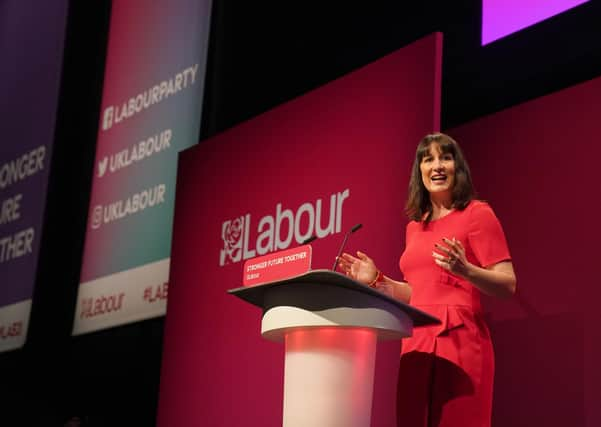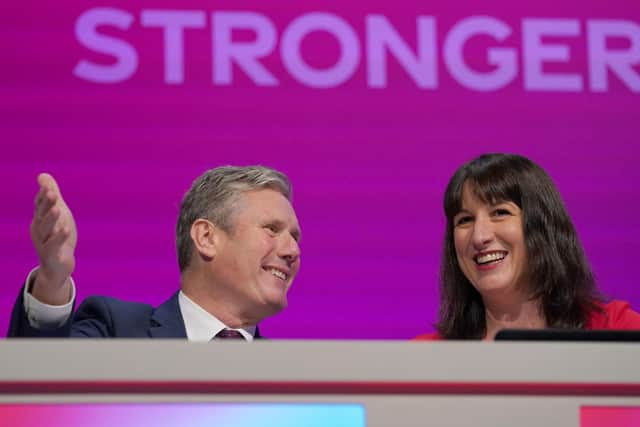Key questions over Rachel Reeves and Labour tax plans – Yorkshire Post Letters


RACHEL Reeves, the Shadow Chancellor, has shown a willingness to think big, but her party conference speech raised more questions than it answered (The Yorkshire Post, September 28).
Business rates are a mess and fundamental reform of corporate taxations generally is long overdue. Even after this speech, it is clear none of the main parties has a credible alternative.
Advertisement
Hide AdAdvertisement
Hide AdLabour has proposed a huge increase in the digital services tax, from two per cent to a punitive 12 per cent. But the digital services tax is a tax on sales rather than profits – and any increase will inevitably be passed on to consumers.


Thereafter, Labour intends to rely on proceeds from a new global corporation tax regime for multinational companies, which is still only at the discussion stage. It is unlikely that the UK’s share of any additional revenues would be anywhere near the £30bn or more usually raised every year from business rates.
As for a new tax on commercial property, this could just be business rates by another name.
The promise to spend an additional £28bn a year on ‘greening’ the economy only makes sense if this investment delivers real benefits to justify the extra borrowing. This is unlikely. Previous governments – of all political colours – have a poor track record trying to pick winners.
Advertisement
Hide AdAdvertisement
Hide AdAs for a new Office of Value for Money, public spending is already independently scrutinised by many organisations – Labour’s new quango might just be a rebranding of what is already happening.
From: Shevaun Haviland, Director General, British Chambers of Commerce.
THE Shadow Chancellor is right to highlight that reforming business rates must also be placed within a wider context of how businesses are taxed.
However, any changes must be done in close consultation with business and international partners to ensure the UK can continue to compete effectively on the global stage. Care should also be taken when reviewing tax reliefs as they can play an important role in incentivising investment.
Advertisement
Hide AdAdvertisement
Hide AdThe promise of extra investment to aid the transition to net zero is a much-needed step. However, there also needs to be a great focus on supporting smaller firms who remain understandably concerned about perceived extra costs and red tape if they want to change.
Support The Yorkshire Post and become a subscriber today. Your subscription will help us to continue to bring quality news to the people of Yorkshire. In return, you’ll see fewer ads on site, get free access to our app, receive exclusive members-only offers and access to all premium content and columns. Click here to subscribe.
Comment Guidelines
National World encourages reader discussion on our stories. User feedback, insights and back-and-forth exchanges add a rich layer of context to reporting. Please review our Community Guidelines before commenting.